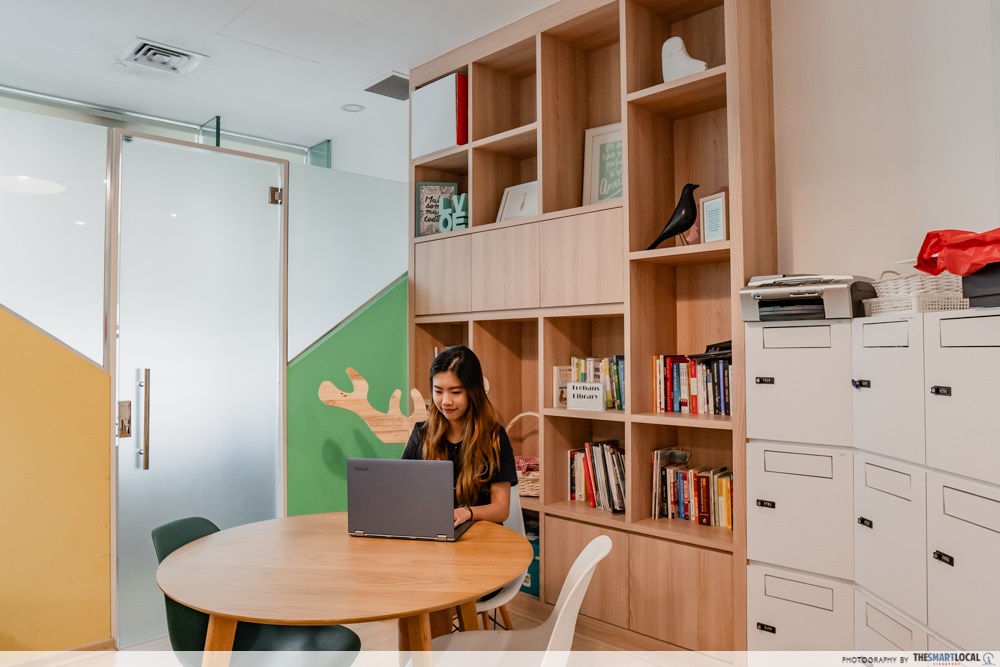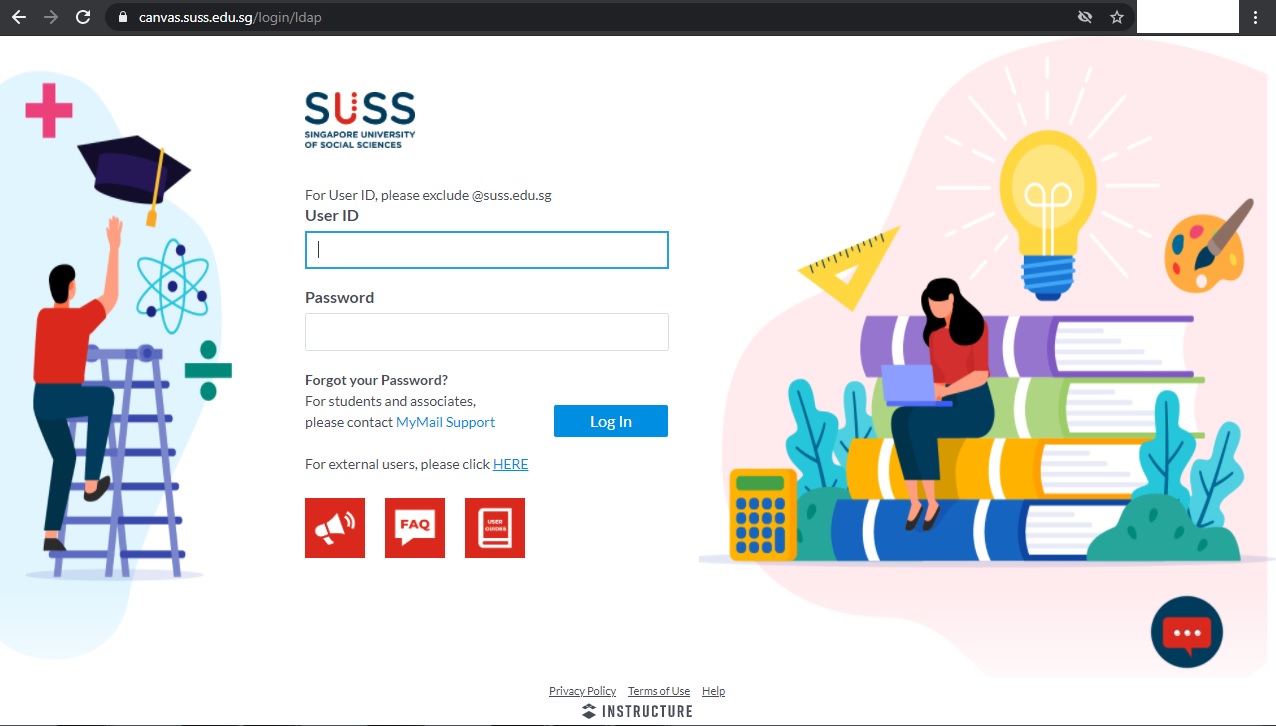Tips for part-time degree students
Whether as students or working adults, there’s no denying that Singaporeans are busy bees. Spending the bulk of our day on either school revision or our job’s workload is almost a norm. So when we hear about part-time degree students, it’s natural to hail them as paragons of time management.
Taking the leap to juggle a 9-6 job, classes, and coursework is a decision that takes a lot of consideration. Should you be one of the brave souls considering this path, we’ve cast our net wide in search of tips to help you balance both work and studies, with 7 of the best ones here for your perusal.
1. Check if your job qualifications allow you to skip courses
 Skipping courses means you’ll have less to clear
Skipping courses means you’ll have less to clear
Sometimes, our certifications and job experiences may entitle you to skip core courses – which means a) lesser courses to clear, and b) faster graduating time. It’s a worthwhile venture, so do some research before enrolling in your courses. Besides looking at your resume and school certs, certain institutes have their own means of gauging credit exemption suitability.
Take for example SUSS, which offers the Challenge Examination (CEX) twice a year for selected fields, which are graded on a pass/fail basis. Passing it will mean that the university recognises that credit unit, but don’t worry too much if you fail it as it won’t be shown in your academic transcript.
Find out more about SUSS’s CEX courses here.
2. Study your coursework before your first class

Rather than going into your course blind, it pays to read up the material beforehand. More often than not, lecturers upload the slides or readings online up to a week before, so take a look before heading into a class to get a better grasp of the content.
Better still, make a few preliminary notes beforehand, says SUSS Literature student, Farid. This doesn’t just save you tons of revision time – it also highlights any points you’re not too sure about. This prevents you from being riddled with too many questions in class while your classmates move along with crystal clear understanding.
3. Avoid taking more than 3 months’ break at a time
 Avoid taking gap years between semesters as it’ll be hard to start studying again
Avoid taking gap years between semesters as it’ll be hard to start studying again
Ask any NSmen who went back to school right after their 2 years of service, and they’ll probably tell you that the shift back to studying mode was particularly difficult. In that same vein, you should avoid taking too long of a break between your semesters. As SUSS Communication student, Yingjie shares, doing so will make it tough to get back into the studying groove.
We get it – taking an extended break after stressful back-to-back semesters sounds incredibly tempting. But after months or years in a lull, your brain might find it hard to switch gears. As a general rule of thumb, try to keep your break to a maximum of 3 months to strike a balance between relaxation and your studying momentum.
4. Take a mix of exam and non-exam based courses if possible
 Mixing up the type of courses you take can help you avoid last-minute cramming
Mixing up the type of courses you take can help you avoid last-minute cramming
Let’s face it – we’re all guilty of last-minute studying before our exams. But when you’re a part-time degree student with a full-time job, you simply don’t have the time nor energy to do this for every paper. Plus, downing cups of coffee and staying up late might just pile unnecessary stress onto your poor body – affecting your job performance as well.
The best way to avoid this? Take courses that are both a mix of exam and non-exam based. As SUSS Communication student, Gerald, shares: he tries to sign up for a mixture of courses with written exams and end-of-course assignments each semester. Doing so allows him to clear 1-2 courses before the dreaded exam week, leaving him ample time to revise for exams.
5. Save your annual leave for exams and revisions
 Save your AL for the days leading up to exams if possible
Save your AL for the days leading up to exams if possible
If you happen to be one of the lucky ones with exams or study leave at your disposal, good on you! However, part-time degree students who don’t have this luxury will need to fall back on their AL to get stuff done.
Among his other bits of wisdom, Gerald also shared that you’ll need more than just the weekend to finish your essays or revisions, and his days of AL give him much-needed time to complete his tasks. While that means less time for holidays or staycations, it’s all worth it as he gets to work towards submitting his coursework on time.
6. Familiarise yourself with school-specific platforms
 Image credit: Singapore University of Social Sciences
Image credit: Singapore University of Social Sciences
In this digital era, more and more schools are using online platforms to supplement e-learning efforts. It’ll take some getting used to, but try devoting some time to familiarise yourself with your school’s web platform so that you won’t be a blur sotong when you suddenly need to use it.
If possible, check to see if there are online courses or guides on how to use such platforms. Universities like SUSS have comprehensive walk-throughs like Canvas101 to show their students the ropes, covering everything from quiz test runs to video recordings of the whole navigation process.
Such guides will definitely save you plenty of time clicking on random buttons to figure out the system, and should be looked into before beginning your first ever class.
7. Get hold of past year papers
Past year papers are useful tools for revision – just think back to the times we studied the heck out of our Ten-Year Series papers.
Finding these papers, however, is a tad more difficult. Not every lecturer uploads them, and students rarely get the chance to keep their own question papers, which means asking your seniors won’t do the trick, either.
Fortunately, SUSS students have it made, as they can find papers spanning from 1-2 years ago on the Canvas online platform. Best thing is, there are papers for most courses, so you can bet that it’ll make revision so much easier.
Pro tips for part-time degree students in Singapore
Time is of the essence, and part-time degree students know this all too well when they’re busy juggling their full-time jobs and their school coursework. It’s tough, but hopefully these tips will help make it easier to balance between the two.
If going down this route is something you’re seriously considering, check out Singapore University of Social Science’s (SUSS) e-Open House on 22nd and 29th August 2020.
There are numerous programme briefings you can watch for a rundown of your favourite course, but should you have more questions, swing by their live dialogue sessions. They’re helmed by various faculty members from different fields like accountancy and early childhood, which you can attend via Zoom.
Apart from that, SUSS has also prepared a slew of other activities. For deeper insights, tune into their enrichment talks or the clips posted on their video walls. You can also “see the sights” from the comfort of your own room via their virtual campus tour, which will show you the full set of amenities and facilities available to all students.
For those of you who are already dead set on this path, remember – applications for the January 2021 intake will close by 30th September 2020, so be sure to settle your necessary registration by then. All the best!
Find out more about SUSS’ part-time degree programmes here
This post was brought to you by SUSS.
Cover image adapted from: TheSmartLocal





